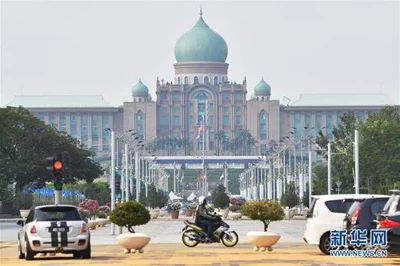Article by Bunn Nagara which appeared in www.china.org.cn, 8 August 2018
Since 1974, a sort of mythology has grown up around how Malaysia's current strong relations with China began to take shape in that year, when Prime Minister Tun Abdul Razak became the first ASEAN leader to normalize relations with it.
Actually Indonesia and Burma (Myanmar) had already established relations with China before ASEAN's formation, back in 1967. And even U.S. President Richard Nixon had set out normalizing things two years before Razak. Good relations between China and the Malay peninsula, predating Malaya and Malaysia, are far more complex, however, and have their roots some 2,000 years. They've been evolving ever since.
The early Tanah Merah kingdom (ca. 100 BCE) in north-eastern Malay peninsula, along with the Kedah kingdom founded two centuries later, enjoyed healthy diplomatic ties with the giant to the north. Throughout centuries of imperial China's tributary system, these sovereign nations and China observed mutual respect and supported each other. Although China was more powerful, it neither conquered nor interfered in their internal affairs, but helped protect their sovereignty from encroachment by neighbors like Siam.
Sometimes this protection was limited or even absent, however, as China opted for non-intervention. The Ming Emperor, for example, did nothing when Vietnam attacked Champa in the 14th and 15th centuries, although both were vassals of China.
After the Malacca Sultanate was established in 1400, it developed strong ties with Ming China. Trade flourished amid the growing diplomacy and general commerce of a healthy bilateral relationship. When the Portuguese attacked and occupied Malacca in 1511, distance restricted China's response. It could do little more than watch the capture of a tributary state; later, however, it exacted some retribution by destroying Portuguese ships at Goa.
The positive relationship was further cemented over time by Chinese communities settling and flourishing in the various sultanates to form part of the local population. The illustrious Dr. Sun Yat-sen, a founder of modern China, was exiled to Penang, where he chaired the 1910 Penang Conference. There, he planned the Second Guangzhou Uprising that resulted in the 1911 Chinese Nationalist Revolution and the collapse of the longstanding system of imperial rule.
Malaya then had the largest Chinese community outside the mainland, and these contributed generously to the nationalist struggle to build a modern China. Their efforts are deeply appreciated on both sides of the Taiwan Straits until today. Through these experiences spanning many generations, Malaysia and China grew to establish a "special relationship" that was not the result of any single diplomatic event.
Prime Minister Dr. Mahathir Mohamad was the first ASEAN leader to work hard for strengthened relations. Throughout the 1980s and 1990s, he made several meaningful and successful visits.
China was the first country Mahathir approached with his proposal for an East Asia Economic Grouping (EAEG) in 1990. When the disastrous 1997-98 Asian Financial Crisis struck, Mahathir appreciated how China helped Asian economies recover by suspending its planned revaluation of the renminbi, and he also used his position to help further develop the relationship between ASEAN countries and China.
To Mahathir, modern China was, and remains, not a threat, but a historic opportunity. A pragmatic Malaysia prefers to build goodwill, confidence and trust with all friendly countries. While this is well remembered, all of it also happened more than a decade ago. So, the question is: how far will both countries now go to secure good and strong relations for the future?
Mahathir and President Xi Jinping share important attributes. Both believe that strong, effective leadership and good governance are essential in developing their countries. They agree that Asian regionalism should follow national self-determination for Asian countries. They share the common aspiration of developing their countries fully through regional integration. Both leaders also aspire to fulfilling national development by setting deadlines. They understand this as a legitimate quest in serving the sovereign interests of their people.
They believe that national sovereignty must exclude external interference. Thus, the universal principle of non-intervention in the internal affairs of countries is key. Both Xi and Mahathir, a son of Kedah, are also committed to fighting corruption, believing that, if left unchecked, it will destroy the very foundations of the party, the state and the nation.
China and Malaysia accept the international norms needed for closer cooperation and coordination on issues of common interest, well knowing this as the basis for a healthy relationship.
Ultimately, the future of bilateral relations depends on what the two countries make of them. It needs constant nurturing and can never be taken for granted.
Recently, Vietnam replaced Malaysia as the ASEAN country with the largest trading relationship with China. However, strong bilateral relations depend on more than just trade.
With a combination of these factors, including building ties based on honesty and the rule of law, China and Malaysia now have a unique opportunity to raise their relations to a new and higher level.
Bunn Nagara is a Senior Fellow at the Institute of Strategic and International Studies (ISIS) Malaysia.





